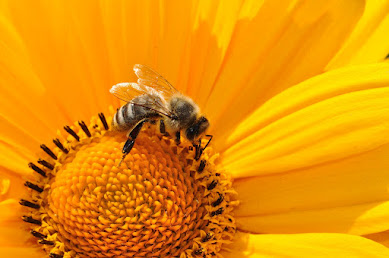The Impact of Bees on the Economy and Its Benefits
Keywords: bees, economy, benefits
Meta Description: Discover the fascinating impact of bees on the economy and the numerous benefits they provide. This comprehensive article explores the crucial role of bees, their economic significance, and the positive implications they bring. Read on to learn how these buzzing little creatures contribute to our world.
Table of Contents:
1. Introduction
2. Importance of Bees in the Economy
2.1 Pollination Services
2.2 Honey Production
3. Economic Sectors Supported by Bees
3.1 Agriculture and Crop Yields
3.2 Food Industry
3.3 Medicinal Uses
4. Environmental and Biodiversity Benefits
5. Challenges Faced by Bees
5.1 Colony Collapse Disorder
5.2 Pesticides and Habitat Loss
6. Conclusion
7. Frequently Asked Questions
Introduction
The role of bees in the economy is often underestimated but incredibly significant. Not only do they aid in the pollination process, but they also generate numerous economic benefits such as honey production and supporting various industries. This article delves into the profound impact of bees on the economy and highlights their indispensable contributions.Importance of Bees in the Economy
2.1 Pollination Services
Bees, through their pollination services, provide a substantial boost to agriculture and the environment. Their capture and transfer of pollen between flowers enable the reproduction of various plant species, ensuring successful crop yields in both commercial and wild settings. This process directly affects the availability and quality of fruits, vegetables, and seeds worldwide.2.2 Honey Production
Bees play a vital role in honey production. They collect nectar from flowering plants and transform it into the sweet, golden substance known as honey. The honey industry not only generates revenue but also provides employment opportunities for beekeepers and honey-related businesses. The diverse range of honey products contributes significantly to the economy, including honeycomb, royal jelly, and beeswax.Economic Sectors Supported by Bees
3.1 Agriculture and Crop Yields
Agriculture heavily relies on bee pollination for maximizing crop yields. Fruits, vegetables, and crops such as almonds, apples, and tomatoes significantly benefit from bees' pollination activities. The increased yield quantity and quality contribute to improved profitability for farmers and food production industries.3.2 Food Industry
Bees' influence extends beyond pollination. Honey, as a natural sweetener, is widely used in the food industry, ranging from confectioneries to beverages. Additionally, bees contribute to the production of beeswax used in food packaging and cosmetics. These value-added products generate substantial revenue for the food industry.3.3 Medicinal Uses
Bee-derived products have medicinal properties and are extensively used in traditional and alternative medicines. Propolis, royal jelly, and bee pollen find applications in various treatments, promoting health and wellness. The bee-related medicinal industry contributes to the economy through research, manufacturing, and sales.Environmental and Biodiversity Benefits
Beyond their economic importance, bees also play a crucial role in maintaining environmental balance. As pollinators, they contribute to the reproduction of plants, ensuring biodiversity and the stability of ecosystems. Bees facilitate seed dispersal, promoting the growth of new plant species. Their presence supports wildlife habitats and enhances overall ecological health.Challenges Faced by Bees
5.1 Colony Collapse Disorder
Colony Collapse Disorder (CCD) poses a threat to bee populations worldwide. The phenomenon involves the sudden disappearance of worker bees from the hive, leaving behind the queen and a diminished population. CCD raises concerns about the availability of pollination services, honey production, and economic implications.5.2 Pesticides and Habitat Loss
Pesticides and habitat loss are major challenges impacting bee populations. Exposure to harmful pesticides negatively affects their health and survival. Additionally, the destruction of natural habitats deprives bees of essential foraging resources. Sustainability measures and habitat conservation are crucial for safeguarding bees and their contributions to the economy.Conclusion
Bees are unsung heroes in our economy, drastically impacting multiple sectors. Their pollination services, honey production, and direct economic contributions are invaluable. However, the challenges faced by bees call for immediate attention and conservation efforts to ensure their continued positive influence on our economy and the environment.Frequently Asked Questions
1. How do bees contribute to the economy? - Bees contribute to the economy through pollination services, honey production, and the supporting industries.
2. Which sectors benefit the most from bee pollination?
- Agriculture, food production, and medicinal industries benefit significantly from bee pollination.
3. What are the challenges faced by bees?
- Bees face challenges such as colony collapse disorder, pesticide exposure, and habitat loss.
4. How can we protect bee populations?
- Sustainable practices, reduced pesticide use, habitat conservation, and public awareness campaigns are crucial for protecting bees


Post a Comment